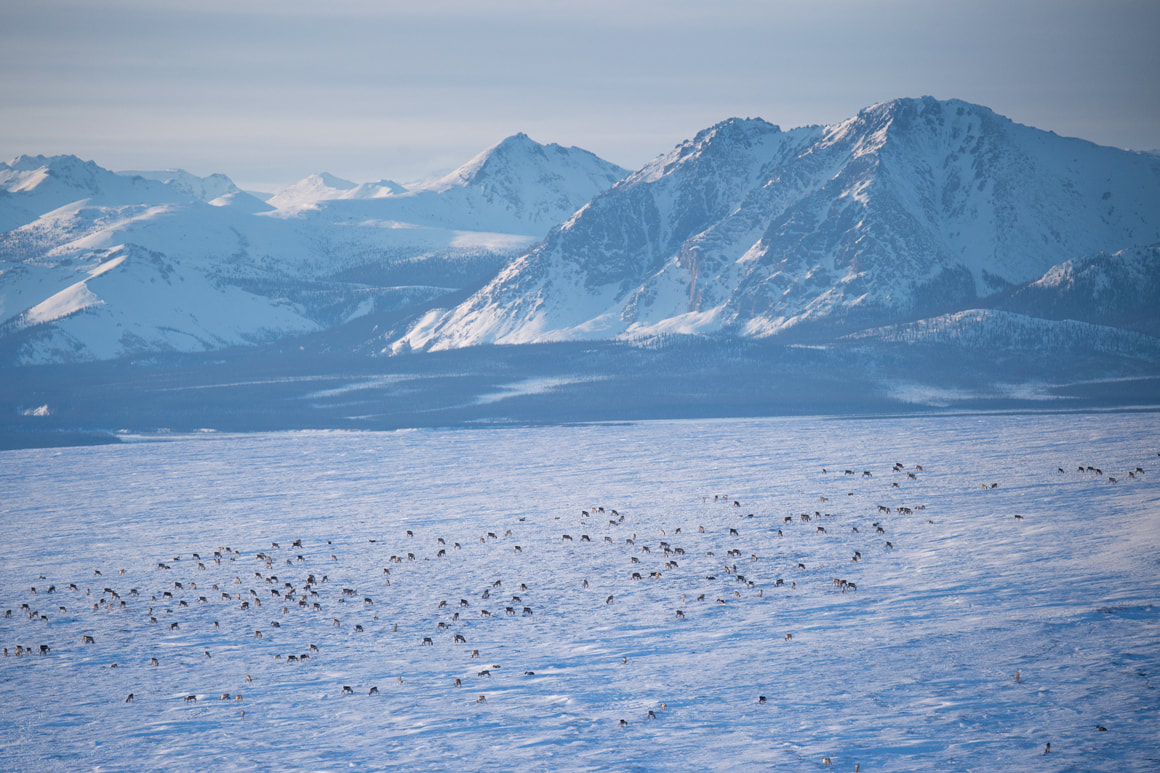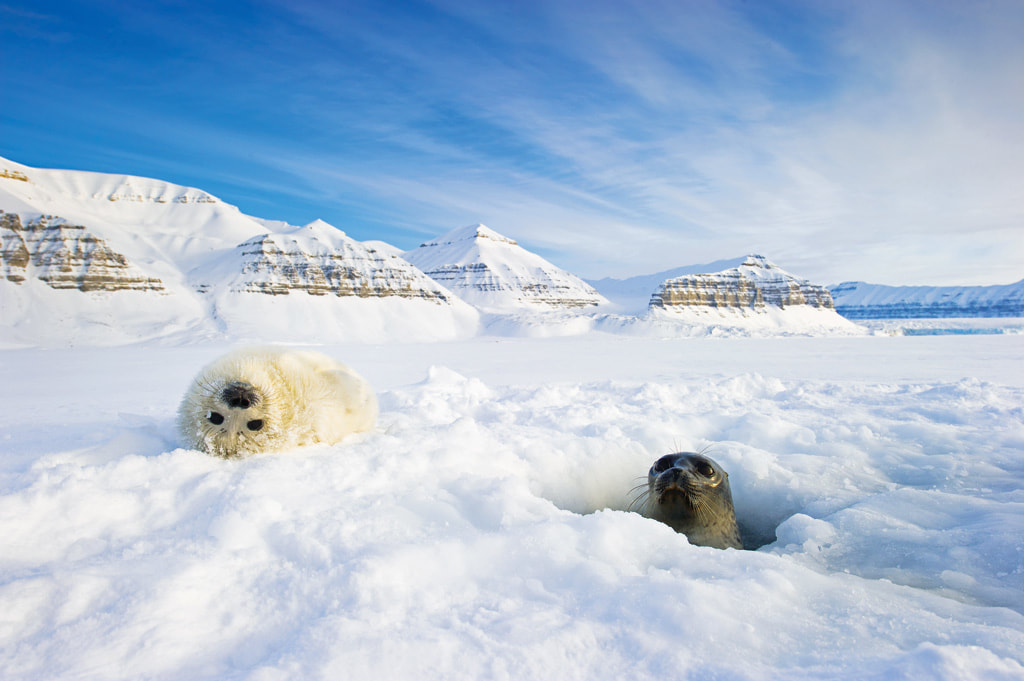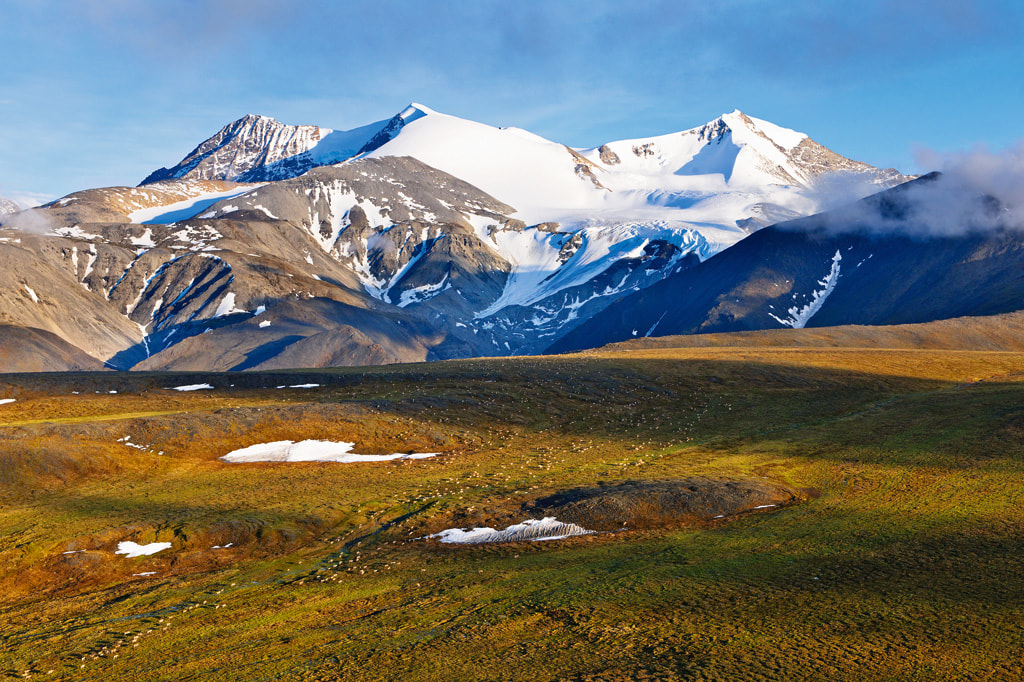 "This issue has been debated for more than 30 years, and to sneak it into a bill that can't be debated is the kind of abuse of power and process that Americans so loathe from the Congress." – Lydia Weiss, The Wilderness Society By Michelle de Nicola On Monday the full Senate will consider the Trump Administration's proposed 2018 budget, which includes opening some of the untouched wilderness in northern Alaska in the Arctic National Wildlife Refuge to oil exploration. There is no reason to assume the budget won't pass or that Trump won't sign it into law. This would be a terrible blow to wilderness preservation, and a very bitter end to a lengthy fight to save the Arctic, documented by conservation photographers like Amy Gulick and Florian Shulz. The only thing that stands between ongoing protection of the refuge, set aside by President Eisenhower in 1960 with the understanding the area would only be "tapped" if world oil supplies were in jeopardy, and destruction of one of the world's most intact wilderness ecosystems is you, your family, your friends, your neighbors – and your phone. We need to take action IMMEDIATELY. Here's what to do. 1. Call your U.S. senators Visit the U.S. Senate website to look up your senators, or call the Capitol Hill switchboard and ask to be connected to them at (202) 224-3121. If you're calling your own senator, remind them that you're a constituent. If you call other senators, be sure to say you're calling as a concerned citizen. If you have family or friends in Ohio, have them call their senators. This is an all-hands on deck alert. The calls eventually go into the office record and the senators are notified. Even a few calls makes a big difference. If no one answers, leave a message on their voicemail. If their D.C. voicemail is full, try calling one of their state office locations. 2. Sign this petition to your senators This petition includes information about the Arctic National Wildlife Refuge and why it's crucial to protect it. A few compelling reasons include protecting the "caribou, muskoxen, wolves, 200 species of migratory birds, and polar bears" who call the refuge home. The area is also important "for the Gwich'in Nation, whose home has been the Arctic since time immemorial, [and who] have called for permanent protection of the birthing grounds of the Porcupine Caribou herd for over 30 years." 3. Why the urgency? Senator Lisa Murkowski and Congressman Don Young of Alaska want to move forward with oil extraction in the 2018 budget resolution. Under Senate rules this only needs a simple majority to pass, instead of the 60-vote majority normally required to get bills through the Senate. In particular, remind Democratic senators who may be inclined to "thank" Sen. Murkowski for her otherwise sensible no votes against repeated attempts to repeal Obamacare that there is no appropriate quid pro quo vote trade that results in drilling in the Arctic National Wildlife Refuge. Murkowski has built political capital into those Obamacare "no" votes – and she expects a return on her investment from her Democratic colleagues. 4. Why is Arctic drilling so dangerous? When President Obama crafted Arctic Refuge protections at the end of 2016, the Interior Department posted a press release about the issue, saying "Risks associated with oil and gas activity in the remote, harsh and undeveloped Arctic are not worth taking while the nation has ample energy sources near existing infrastructure." The Interior documents goes on to say, "Oil spill response and clean-up raises unique challenges in the Arctic and a spill could have substantial impacts on the region, particularly given the ecosystem fragility and limited available resources to respond to a spill. If lease sales were to occur and [oil] production take place, it would be at a time when the scientific realities of climate change dictate that the United States and the international community must be transitioning its energy systems away from fossil fuels." More to consider – Americans are directly impacted by the drilling Alaskan natives who live off the coast of the Chukchi Sea worry about how the drilling and its impacts will affect their way of life. Consider Kivalina, a community on a barrier reef island in northwest Alaska, which is already suffering dramatic effects from erosion due to climate change. Northwest Alaska residents face hunger challenges too, especially as permafrost thaws and ice cellars which have historically provided year-round, freezer-style protection for meat supplies are now melting "at unusual times of the year." In addtion, as sea ice continues to melt, large fracturies in the ice shelf called "leads" continue to grow. A lifelong resident of Kivalina resident says, "The sea ice used to be 12 feet thick, and there was just one lead. Now it is four feet thick and there are many leads." Why is taking action NOW so important? According to Lydia Weiss, government relations director for the Wilderness Society, attaching the Arctic drilling measure to the budget "is a way of dodging public debate on the controversial proposal." We agree. Weiss adds, "This issue has been debated for more than 30 years, and to sneak it into a bill that can't be debated is the kind of abuse of power and process that Americans so loathe from the Congress." CALL TO ACTION 1. CALL your Senators Visit the U.S. Senate website to look them up your senators here, or call the Capitol Hill switchboard and ask to be connected to them at (202) 224-3121. 2. SIGN this petition to your Senators This petition includes specific information about the Arctic National Wildlife Refuge and why it's so important to protect it. Call now. Write now. By lunchtime on Monday it could be too late. Photos by Florian Schulz from To the Arctic.
0 Comments
Leave a Reply. |
Green Thoughts
The blog component of San Diego County Democrats for Environmental Action welcomes content from SDCDEA members, guests and leadership. Archives
October 2023
Categories |
Social Media
Quick Links |



 RSS Feed
RSS Feed

